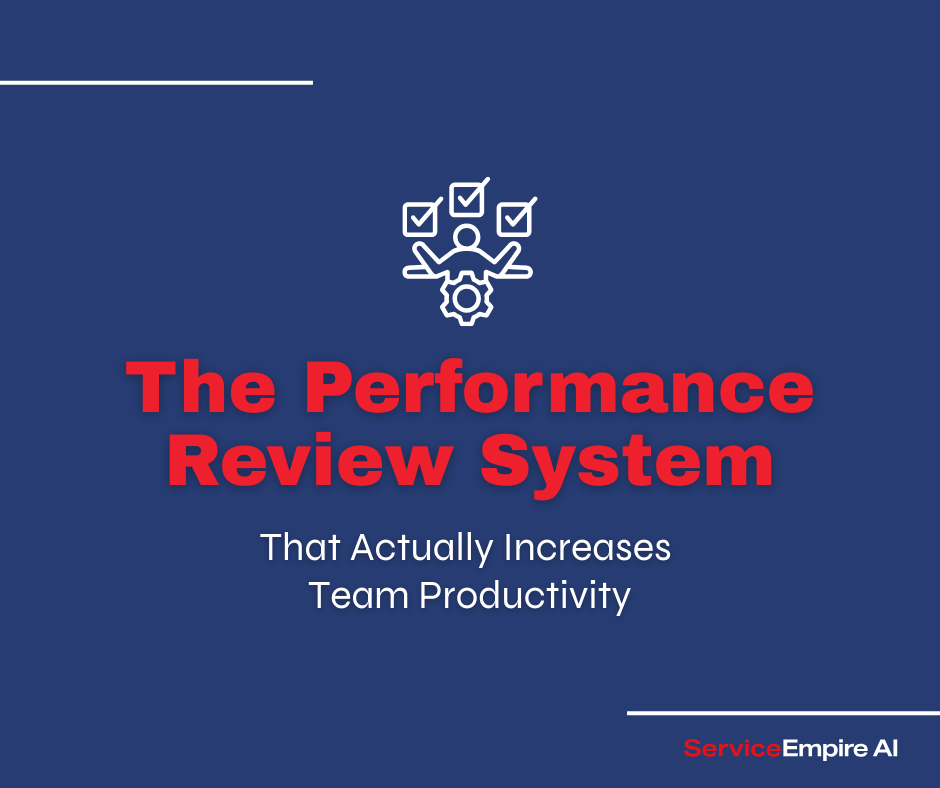
Introduction
The electrical industry is strong and growing, with jobs for electricians expected to rise 11% by 2033—faster than many other jobs. This means about 84,300 job openings each year. Being a certified electrician offers great job security and good pay. In a job where safety matters, getting the right certification is key to staying safe and growing your career.
If you want to become a certified electrician, it’s important to understand the certification process. People often mix up certification and licensing, but they’re different. Certification shows you have certain skills or knowledge, while a license gives you legal permission to work as an electrician in your state.
This simple guide will walk you through how to become a certified electrician—including the types of certification, state rules, school and training options, test prep, costs, and how to grow in your career with the right certifications.
Understanding Electrician Certification vs. Licensing
The electrical profession involves two primary types of credentials that, while related, serve different purposes and are issued by different authorities.
What is Electrician Certification?
Electrician certification generally refers to credentials that verify specific knowledge, skills, or capabilities within the electrical field:
- Issuing Bodies: Industry organizations, educational institutions, or private certification bodies
- Purpose: Validates specific skills or knowledge areas
- Requirement: Often voluntary, though may be required for certain specialized work
- Scope: May focus on specialized areas (solar installation, low voltage, etc.)
- Recognition: Generally recognized across jurisdictions
Common certification providers include the National Electrical Contractors Association (NECA), Independent Electrical Contractors (IEC), and specialized bodies like the North American Board of Certified Energy Practitioners (NABCEP) for solar installations. These are also the sources for much of the certification information that follows.
What is Electrician Licensing?
Electrician licensing refers to the legal permission to practice the trade:
- Issuing Bodies: State licensing boards or local government authorities
- Purpose: Legal requirement to perform electrical work
- Requirement: Mandatory in most states to legally work as an electrician
- Scope: Covers general electrical practice within a jurisdiction
- Recognition: Limited to the issuing jurisdiction unless reciprocity exists
Licensing typically involves demonstration of competency through experience, education, and passing an examination based on the National Electrical Code (NEC) and local amendments.
Many electricians hold both state licenses and various certifications to maximize their credentials and employment opportunities.
Types of Electrician Certifications
The electrical profession follows a structured hierarchy of certifications that reflect increasing levels of skill, knowledge, and responsibility.
Apprentice Electrician
The entry point for electrical careers:
- Requirements: High school diploma/GED, typically 18+ years old
- Training: 4-5 years (8,000-10,000 hours) of supervised work experience plus classroom instruction
- Responsibilities: Works under journeyman or master supervision, learning the trade
- Authority: Cannot work independently, must be supervised
- Next Step: Journeyman electrician certification
Apprentices earn while they learn, typically starting at 40-50% of journeyman wages with progressive increases.
Journeyman Electrician
The core professional level for electricians:
- Requirements: Completed apprenticeship, passed journeyman exam
- Training: 4-5 years of apprenticeship (8,000-10,000 hours)
- Responsibilities: Installs, maintains, and repairs electrical systems
- Authority: Works independently, may supervise apprentices
- Next Step: Master electrician certification
Journeyman electricians form the backbone of the electrical workforce and can work independently on most projects.
Master Electrician
The highest standard certification for practicing electricians:
- Requirements: 2-4 years as journeyman electrician, passed master exam
- Training: Typically 12,000+ total hours of experience
- Responsibilities: Advanced electrical work, system design, code compliance
- Authority: Pull permits, design systems, supervise multiple journeymen
- Next Step: Electrical contractor/business owner
Master electricians often oversee projects, manage teams, and handle the most complex electrical work.
Specialist Certifications
Beyond the standard hierarchy, electricians can pursue specialized certifications:
Solar/Photovoltaic Certification
- NABCEP PV Installation Professional
- NABCEP PV Design Specialist
- Solar Energy International Certifications
Low Voltage Certification
- Voice-Data-Video Certification (VDV)
- Security and Fire Alarm Systems
- Building Automation Systems
Industrial Electrician Specializations
- Motor Control Specialist
- Programmable Logic Controller (PLC) Certification
- Industrial Automation Certification
These specialized certifications can significantly increase earning potential and job opportunities in growing niches.
Certification Hierarchy Visualization
The electrical certification path typically follows this progression:
- Pre-Apprentice (optional)
- Basic safety and introductory skills
- Classroom training only
- Preparing for apprenticeship
- Apprentice Electrician
- 4-5 years of combined work and classroom training
- 8,000-10,000 hours of supervised work
- 576-1,000 hours of classroom instruction
- Journeyman Electrician
- State licensing exam
- Independent work authorization
- Supervision of apprentices
- Master Electrician
- Advanced state licensing exam
- 2-4 additional years of experience
- System design authority
- Permit pulling privileges
- Electrical Contractor
- Business licensing
- Insurance and bonding
- Management of multiple electricians
- Commercial and legal responsibilities
Most electricians complete the journey from apprentice to journeyman, while some continue to master level and business ownership. Check out this article to learn more about all the different types of electricians.
State-by-State Electrician Licensing Requirements
Electrician licensing is primarily regulated at the state level, with variations in requirements across the United States.
Licensing Variability
The most significant differences include:
- Experience hour requirements (ranging from 4,000 to 12,000 hours)
- Educational requirements (classroom hours ranging from 16 to 1,000)
- Examination content and difficulty
- License levels recognized (some states don't license apprentices)
- Reciprocity with other states
- State vs. local licensing jurisdiction
Top 9 Strictest States for Licensing
These states have the most rigorous requirements:
- Washington: 8,000 hours (4 years) experience for journeyman, 4,000 additional hours for master, 96 classroom hours
- Minnesota: 7,000 hours (3+ years) experience, 144 classroom hours annually
- Wyoming: 8,000 hours (4 years) experience, 4 years additional experience for master, 576 classroom hours
- Maine: 8,000 hours (4 years) experience, 576 classroom hours
- Oregon: 4,000 hours (4 years) experience, 288 classroom hours
- Rhode Island: 8,000 hours (4 years) experience, 576 classroom hours
- Nevada: 8,000 hours (4 years) experience, 4 more years to become a contractor
- Connecticut: 8,000 hours (4 years) experience, 144 classroom hours
- New Hampshire: 8,000 hours (4 years) experience, 600 classroom hours
States with Unique Requirements
Some states have distinctive licensing approaches.
Louisiana, Illinois, Missouri, Indiana, and New York all require municipal licenses (local cities or counties) rather than state licenses. New York City has even more requirements than most of the states listed above.
-
Reciprocity Agreements
Some states have formal agreements to recognize licenses from other states:
- Many states in the Northeast recognize each other's licenses
- Western states often have reciprocity agreements
- Southern states frequently have limited reciprocity
Even with reciprocity, most states require familiarization with local codes and regulations through a supplemental exam.
Educational Pathways to Certification
Multiple educational paths can lead to electrician certification, each with advantages depending on individual circumstances and goals.
High School Preparation
Secondary education can provide a strong foundation:
- Mathematics courses (algebra, geometry, trigonometry)
- Physics and basic sciences
- Shop or vocational classes
- Technical drawing or blueprint reading
- Computer skills for modern systems
- Business courses for future entrepreneurs
Many high schools offer vocational programs or partnerships with technical schools that allow students to begin electrical training while completing their diploma.
Trade School Programs
Dedicated electrical programs at trade schools offer structured training:
- Programs typically last 9-24 months
- Focus on practical skills and theory
- Often include certification preparation
- May provide credit toward apprenticeship requirements
- Cost typically ranges from $5,000-$20,000
- May offer job placement assistance
Trade schools provide intensive, focused education but must be complemented with on-the-job experience.
Community College Electrical Programs
Community colleges typically offer broader education with electrical focus:
- Associate degree programs (2 years) or certificates (1 year)
- Combination of general education and technical training
- Often include business management components
- Credits may transfer to bachelor's programs
- Typically lower cost than private trade schools
- May have partnerships with local unions or contractors
Apprenticeship Programs
Apprenticeships combine paid on-the-job training with classroom instruction:
- Traditional path to journeyman status
- Usually 4-5 years in duration
- Earn while you learn model
- Structured progression of skills development
- Operated by unions, contractor associations, or independent programs
- Classroom training typically 576-1,000 hours
- On-the-job experience typically 8,000-10,000 hours
Education Option Comparison:
Apprenticeship Requirements and Process
The apprenticeship represents the traditional and most comprehensive pathway to becoming a certified electrician, combining structured on-the-job training with related classroom instruction.
Finding Apprenticeship Opportunities
Several avenues exist for entering an electrical apprenticeship:
Union Apprenticeships
- Managed by International Brotherhood of Electrical Workers (IBEW)/National Electrical Contractors Association (NECA)
- Typically highest pay during apprenticeship
- Structured progression and training
- Apply through local Joint Apprenticeship & Training Committee (JATC)
- May have waiting lists in some areas
- May require aptitude testing and interviews
Non-Union/Merit Shop Apprenticeships
- Managed by Independent Electrical Contractors (IEC) or Associated Builders and Contractors (ABC)
- More flexible entry requirements
- Varying pay scales
- Apply through local chapters or affiliated contractors
- Recognized in most jurisdictions
Employer-Sponsored Apprenticeships
- Individual companies that run their own programs
- Requirements vary by employer
- May offer immediate employment
- Quality and structure can vary significantly
- Check for state registration/approval
Apprenticeship Hour Requirements
Most states require:
- 8,000 hours (4 years) of on-the-job training
- 576-1,000 hours of classroom instruction
- Documentation of hours by category of work
- Verification by supervising electricians
- Registration with state apprenticeship council
Apprenticeship Compensation
Apprentices earn while they learn, typically with progressive increases:
- Starting pay: 40-50% of journeyman rate ($15-$20/hour)
- Second year: 50-60% of journeyman rate
- Third year: 60-70% of journeyman rate
- Fourth year: 70-80% of journeyman rate
- Fifth year: 80-90% of journeyman rate
Benefits often include health insurance, retirement contributions, and paid training.
Apprenticeship Requirement Checklist
- Age requirement (typically 18+)
- High school diploma or GED
- Driver's license (usually required)
- Physical capability to perform the work
- Pass aptitude test (math, reading, mechanical)
- Pass interview process
- Pass drug screening
- Complete application forms
- Provide references
- Register with state apprenticeship council
Exam Preparation for Electrician Certification
Passing the licensing examination represents a critical milestone in becoming a certified electrician. Comprehensive preparation significantly increases success rates.
Exam Content Overview
While specific content varies by state, most electrician exams cover:
Journeyman Examination Topics:
- National Electrical Code (NEC) knowledge (70-80% of content)
- Electrical theory and principles
- Wiring methods and materials
- Equipment for general use
- Special occupancies and conditions
- General electrical knowledge
- Motor controls and safety
- Blueprint reading and load calculations
Master Examination Additional Topics:
- Advanced code application
- Electrical system design
- Power distribution
- Business and legal requirements
- Advanced mathematics and calculations
- Specialized systems (emergency, communications)
Study Resources
Effective preparation typically utilizes multiple resources:
Code Books
- Current National Electrical Code (NEC)
- State-specific amendments
- Code analysis and illustrated guides
Study Guides
- Tom Henry's Key Word Index
- Mike Holt's Exam Preparation materials
- NJATC/IBEW training materials
- State-specific exam preparation books
Practice Exams
- Online practice tests
- Timed practice sessions
- State-specific practice examinations
- Previous exam questions when available
Courses and Classes
- Exam preparation courses (in-person or online)
- Code review seminars
- Focus sessions on challenging topics
- Final review "boot camps"
Exam Content Breakdown
A typical journeyman exam consists of:
- 80-100 multiple-choice questions
- 4-hour time limit
- 70-75% passing score requirement
- Open or closed book (varies by state)
- Computer-based or paper testing
Here are the key content areas in the exam:
- General Electrical Knowledge
- Services and Service Equipment
- Feeders
- Branch Circuits and Conductors
- Wiring Methods and Materials
- Equipment for General Use
- Special Occupancies
- Special Equipment
- Motors and Controls
Electrician Certification Costs
The financial investment required to become a certified electrician varies based on educational pathway, location, and certification level.
Training and Education Costs
Apprenticeship Route:
- Application fees: $25-$100
- Basic tools and equipment: $500-$1,500
- Books and materials: $300-$800 annually
- Tuition (if not covered): $0-$3,000 annually
- Total 5-year cost: $1,000-$15,000 (but earning wages throughout)
Trade School Route:
- Tuition and fees: $5,000-$20,000
- Tools and equipment: $500-$1,500
- Books and materials: $500-$1,000
- Total cost: $6,000-$22,500
Community College Route:
- Tuition and fees: $5,000-$15,000
- Tools and equipment: $500-$1,500
- Books and materials: $1,000-$2,000
- Total cost: $6,500-$18,500
Licensing and Examination Costs
Costs vary by jurisdiction and license level:
Apprentice Level:
- Registration fee: $15-$150
- Background check: $0-$75
- Application processing: $25-$100
- Total: $40-$325
Journeyman Level:
- Examination fee: $75-$250
- License issuance: $50-$300
- Application processing: $25-$100
- Total: $150-$650
Master Level:
- Examination fee: $100-$350
- License issuance: $150-$500
- Business licenses (if applicable): $75-$300
- Total: $325-$1,150
Ongoing Costs
Maintaining certification requires continued investment:
License Renewal:
- Journeyman renewal: $50-$200 (typically annually or biennially)
- Master renewal: $100-$400 (typically annually or biennially)
- Specialty certification renewal: $25-$150 per certification
Continuing Education:
- Required hours: Typically 8-24 hours annually
- Course costs: $25-$75 per credit hour
- Annual CE investment: $200-$1,200
Business Costs (for independent electricians):
- Liability insurance: $500-$2,000 annually
- Bonds: $100-$500 annually
- Vehicle and tool insurance: $500-$1,500 annually
- Business licenses: $75-$500 annually
If you want your business to obtain BBB accreditation, that can also be an additional cost.
Return on Investment
Despite significant costs, electrical certification offers strong financial returns:
Salary Progression:
- Apprentice: $30,000-$50,000
- Journeyman: $50,000-$80,000
- Master: $70,000-$100,000+
- Electrical Contractor: $80,000-$200,000+
Most electricians recoup their total education and licensing costs within the first 1-2 years after achieving journeyman status through increased earnings.
Continuing Education Requirements
Most states require continuing education (CE) to renew electrical licenses, ensuring electricians remain current with code changes and safety practices.
State-Specific CE Requirements
Requirements vary by state:
- Annual requirements ranging from 0-24 hours
- Some states require CE only when code updates occur
- Focus on code changes, safety, and business practices
- Approved provider requirements
- Verification methods (certificates, online reporting)
Approved Course Types
Most jurisdictions approve courses covering:
- National Electrical Code updates
- Safety and OSHA requirements
- New materials and technologies
- Business management and practices
- System design and engineering
- Specialized systems (renewable energy, etc.)
CE Tracking Template
Maintaining organized CE records is essential:
- Track completion dates and credit hours
- Maintain certificates of completion
- Create a renewal deadline calendar
- Document code cycle relevance
- Keep records beyond current renewal cycle
A bit more on this later...
Specialty Electrical Certifications
Specialized electrical certifications can significantly increase earning potential and job opportunities in growing sectors.
Solar/Photovoltaic Certifications
The renewable energy sector offers lucrative opportunities:
- NABCEP PV Installation Professional
- NABCEP PV Design Specialist
- NABCEP PV Technical Sales
- UL PV System Installation Certification
Solar-certified electricians typically earn 10-15% more than comparable non-certified professionals.
Low Voltage Certifications
Technology infrastructure certifications include:
- BICSI Installer certifications
- Voice-Data-Video (VDV) Certification
- Security System Technician
- Fire Alarm Technician
- Audio/Visual Systems Technician
These specialties can supplement traditional electrical work or become full-time focus areas.
Industrial Electrician Certifications
Manufacturing and industrial settings require specialized skills:
- Motor Control Specialist
- Programmable Logic Controller (PLC) Programming
- Industrial Automation Certification
- Hazardous Location Specialist
- Instrumentation Technician
Industrial electricians typically earn 15-20% more than residential-focused electricians with similar experience.
Career Advancement with Electrical Certification
Electrical certifications create clear pathways for career growth and specialization.
Salary Progression with Certification Levels
Advancing through certification levels directly impacts earning potential:
Job Opportunity Expansion
Higher certification levels unlock new employment options:
- Journeyman: Independent work, site supervision
- Master: Project management, system design, permit pulling
- Contractor: Business ownership, multi-project management
- Specialist: Consulting, inspection, specialized installation
Electrical Business Ownership
Many master electricians establish their own businesses:
- Electrical contracting companies
- Specialized service providers
- Consulting firms
- Inspection services
- Design-build electrical firms
Business owners often earn substantially more than employees but assume greater risk and responsibility.
Project Management Progression
Certification enables management advancement:
- Lead Electrician: Small team supervision
- Foreman: Project site management
- General Foreman: Multi-site coordination
- Superintendent: Division or company-wide oversight
- Project Manager: Complete project responsibility
Each step typically includes 10-20% compensation increases.
Starting Your Own Electrical Business
Many master electricians eventually establish their own electrical contracting businesses.
Additional Requirements Beyond Certification
Business establishment typically requires:
- Electrical contractor license (separate from master electrician)
- Business registration (LLC, corporation, etc.)
- Federal tax ID (EIN)
- State and local business licenses
- Contractor's bond (varies by state, typically $5,000-$25,000)
- Liability insurance ($1,000,000+ typical requirement)
- Workers' compensation insurance
- Vehicle and tool insurance
- Local permits and registrations
Business Launch Checklist
- Obtain master electrician license
- Secure electrical contractor license
- Form legal business entity
- Register with tax authorities
- Obtain business bank account
- Secure required insurance
- Purchase or lease vehicles and equipment
- Develop marketing materials
- Create customer contracts and forms
- Establish accounting system
- Hire employees if needed
- Join professional associations
Contractor Requirements by State
Requirements vary significantly by location, but typically include:
- Proof of experience (typically 2-4 years as master electrician)
- Financial stability verification
- Passing a business and law examination
- Proof of insurance and bonding
- Workers' compensation coverage for employees
- Physical business location in many jurisdictions
National Electrical Code and Certification
The National Electrical Code (NEC) forms the foundation of all electrical certification and licensing examinations.
NEC Code Cycle
The NEC is updated every three years:
- Most recent edition: 2023 NEC
- Previous editions: 2020, 2017, 2014
- Most states adopt new codes within 1-2 years of publication
- Some states skip cycles or adopt modified versions
Conclusion
Becoming a certified electrician is a structured journey through apprenticeship, education, and examination—ultimately leading to a rewarding career with stability and solid earning potential. The multi-level certification system provides clear advancement pathways from apprentice to journeyman to master electrician, with numerous specialization opportunities along the way.
While the requirements vary significantly by state, the core progression remains consistent: gain knowledge through education, develop skills through supervised experience, demonstrate competency through examination, and maintain currency through continuing education. This systematic approach ensures that certified electricians possess the expertise necessary to perform safely in a profession where mistakes can have serious consequences.
Whether your goal is secure employment, business ownership, or specialization in emerging technologies like renewable energy, the electrical certification pathway provides a solid foundation for career success. By understanding the requirements and strategically planning your certification journey, you can maximize your potential in this essential skilled trade.
FAQ Section
How long does it take to become a certified electrician?
The typical timeline to become a fully certified electrician is 4-6 years. Most states require completing an apprenticeship of 4-5 years (8,000-10,000 work hours) plus classroom training before qualifying for journeyman examination. After passing the exam, you'll receive journeyman certification/licensing. Master electrician certification typically requires an additional 2-4 years of journeyman experience before qualifying for the advanced examination. This timeline can vary based on state requirements, educational background, and whether you attend trade school before apprenticeship. Some accelerated programs combine pre-apprenticeship training with apprenticeship to slightly reduce the total time.
Can I work as an electrician while getting certified?
Yes, working as an apprentice electrician is the standard pathway to certification. Apprentices work under the supervision of journeyman or master electricians while learning the trade. This "earn while you learn" approach provides practical experience that counts toward certification requirements while also providing income. In most states, you must register as an apprentice with the state licensing board or apprenticeship council before legally working in the field. This registration typically requires minimal paperwork and a small fee. During your apprenticeship, you'll combine on-the-job training with required classroom instruction, typically 144-200 hours per year.
What's the difference between a licensed and certified electrician?
While often used interchangeably, these terms have distinct meanings. A licensed electrician has legal authority from a government entity (state or local) to practice electrical work in a specific jurisdiction. Licensing is mandatory to legally perform electrical work in most areas. A certified electrician has demonstrated specific knowledge or skills, typically through examination, with certification often issued by industry organizations rather than government entities. Many electricians are both licensed by their state and certified in specialties like solar installation or low-voltage systems. In practical terms, most positions require a state-issued license, while certifications can enhance employability and earning potential.
Do electrician certifications transfer between states?
Electrician certifications and licenses generally don't automatically transfer between states, as requirements vary significantly. However, many states have reciprocity agreements that recognize licenses from certain other states with similar requirements. Even with reciprocity, you'll typically need to:
- Apply for license recognition in the new state
- Provide proof of current licensing in good standing
- Document your experience and education
- Possibly take an examination on local code requirements
- Pay applicable fees
Always check with the licensing authority in your destination state before relocating. Some states also offer temporary work permits while you complete the full licensing process.
How often do I need to renew my electrician certification?
Renewal frequencies vary by state and certification type. State licenses typically require renewal every 1-3 years, with most states on annual or biennial cycles. Renewal typically involves:
- Submitting an application
- Paying a renewal fee ($50-$300 depending on license level)
- Documenting completion of required continuing education (typically 8-24 hours per renewal period)
- Updating insurance and bond information if applicable
Specialty certifications like NABCEP for solar installation usually require renewal every 3 years with specific continuing education requirements. Check your specific state requirements, as failing to renew on time can result in additional fees or retesting requirements.
Can I get certified as an electrician with a criminal record?
A criminal record doesn't automatically disqualify you from becoming a certified electrician, but it can present challenges. Most licensing authorities conduct background checks and evaluate criminal history on a case-by-case basis, considering:
- Nature and severity of the offense
- How recently it occurred
- Relationship to the electrical profession (especially theft, fraud, or violent crimes)
- Evidence of rehabilitation
Minor offenses and those unrelated to trustworthiness typically won't prevent certification, especially if they occurred years ago. However, felonies and crimes involving dishonesty may present significant barriers in some jurisdictions. Consider consulting with the licensing authority or an attorney familiar with occupational licensing before investing in training.






